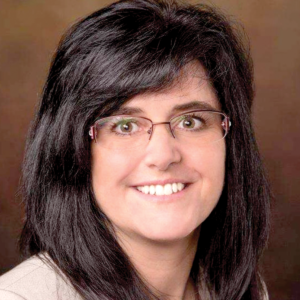By Lawrence Reed, Director of Frontier Institute
“On this important question, the verdict is in and it is definitive: The one ingredient that makes the most difference in educational outcomes is parental involvement.”
Of all the ingredients in the recipe for educating children, which one has the greatest potential to improve student outcomes?
Teacher unions would put higher salaries for their members at the top of the list, to which we should all respond, “Been there, done that!” Teacher compensation has risen generously around the country, while indicators of pupil performance have stagnated or fallen.
What about smaller class size, a longer school year, more money for computers, or simply more money for fill-in-the-blank? Evidence strongly suggests that those elements bear little or no connection to student success. On this important question, the verdict is in and it is definitive: The one ingredient that makes the most difference in educational outcomes is parental involvement.
Homeschooling is the ultimate in parental involvement. Parents who give up time and income to directly supervise the education of their children are exercising the ultimate parental responsibility. Recognizing these heroes in our midst is long overdue.
The California-based Reason Foundation reports that in the 18 years between 2002 and 2020, spending per pupil in Montana public schools rose to nearly $14,000—an increase of 25 percent in real terms, after accounting for inflation. That means that the state’s roughly 7,400 home school children (as reported by the Associated Press) are saving Montana taxpayers well over ten million bucks this year. Nationwide, home schoolers save the public upwards of $56 billion. The average homeschool household spends under $1,000 of its own income to educate a child, even as it still pays taxes to a system it doesn’t use.
Study after study show that home education gets far more bang for the bucks than schools run by government do. Scores on achievement tests are off-the-charts but perhaps most remarkably, according to the National Home Education Research Institute, are these facts: “Whether homeschool parents were ever certified teachers is not related” to those test scores, and the “degree of state control and regulation of homeschooling is not related to academic achievement” either. And the best colleges and universities are eager to recruit homeschooled students.
As explained by Marianna Brashear of the Foundation for Economic Education: “The word ‘schooling’ in homeschooling is misleading because education takes place in and out of formal lessons, including field trips and hands-on learning. The biggest waste of time in schools comes not just from questionable or one-sided content, but also from ‘teaching to the test,’ where kids memorize, regurgitate, and forget.”
Teaching children at home isn’t for everyone. There are good schools—private, and public—that are doing a better job than some parents could do. But homeschooling is working very well for the growing number of parents and children who choose it. You don’t hear much about this because parents don’t have their own tax-funded PR departments.
Parents who homeschool often want a strong moral focus. Others are fleeing unsafe schools where discipline and academics take a backseat to silly fads and politically correct dogma. Many homeschool parents complain about the pervasiveness in public schools of instructional methods that border on pedagogical malpractice, including drag queen story hours and far-Left indoctrination. Others value the flexibility to travel with their children for hands-on, educational purposes; the ability to customize curricula to each child’s needs and interests; and the potential to strengthen relationships within the family.
There’s no evidence that homeschooled children make anything but fine, solid citizens who respect others and work hard as adults. At least instinctively, we all seem to know that. When we hear of bullying, rioting, drug abuse or unruliness, nobody thinks, “Oh, there go the home school kids again.”
Treasure State parents who are interested in exploring this proven education option should take a look at the website of the Montana Coalition of Home Educators. How to get started, how to comply with the law, what resources are available—it’s all there. Do your children a favor and give it a look.






